In this article, I explain how to defend yourself against Copytrack. I tested their system, discovered its flaws, and share all my advice here. To stop their practices, file a complaint!

If you’re reading this, you probably got an email from Copytrack, just like me. I had the pleasure of getting three in one week, and I’m going to share how I got rid of Copytrack. This article also digs into the company behind Copytrack (RD Legal GmbH), its boss Marcus Schmitt, and how their software works—along with its weak spots. Everything here comes from my own research and work. Feel free to share and comment. And most importantly, file a complaint (online, in a few clicks) to stop Copytrack’s shady tactics.
Copytrack: everything you need to know in 30 seconds
- Copytrack is a copyright troll with practices that push the edge of legality. Complaints are piling up against this German company for its aggressive tactics.
- It’s been proven time and again that Copytrack tries to get payments for images their clients don’t even own. Tip: do a reverse image search. If the image is sold on multiple sites, you’re in the clear because Copytrack’s client doesn’t have exclusive rights.
- Copytrack has zero legal or judicial power. Their game is to pressure you with threats to pocket a 45% commission on whatever you pay. My tests show if you ignore their emails, you won’t get follow-ups. So don’t make the mistake of replying!
- If you want to respond, demand they prove their mandate and the image’s ownership first. The more paperwork you ask for, the less profitable you are to them, and the faster they’ll leave you alone. If you’re in the right, don’t send them anything until they show their proof.
- Copytrack rarely takes anyone to court. In Germany, they’ve lost every case because courts found their compensation calculations unjustified. In Italy, the Competition Authority forced Copytrack to change its ways.
- If you own the rights to the images Copytrack is bugging you about, you can take action to shut them down: file a complaint and report their practices to your country’s competition authority! I’ve listed online complaint links for different countries at the end.
I’ve already shared my run-in with the copyright troll PicRights. This time, I dealt with Copytrack (RD Legal GmbH), and it’s on a whole other level. Copytrack might just be the boldest copyright troll, pushing the limits toward extortion by demanding money for images their clients don’t always own or that you’ve already bought. We’re talking practices that skirt the edge of illegality and could land them in court. In fact, Copytrack faced a flood of complaints in Italy and had to fight for its survival before the Competition Authority.
Copytrack’s Game Plan: Get You to Pay Fast
Copytrack’s business model is simple. They take a 45% cut of everything they collect. It’s right there in their terms of service (see below):

Copytrack’s terms spell out their pay model. The Berlin company grabs 45% of whatever they collect, so they want you to pay as much as possible, as fast as possible.
Their goal is to make you pay quickly, even if it means slashing their demands. You get bombarded with threatening letters and ultimatums to scare you into paying.
Unlike copyright trolls like PicRights, Copytrack uses a real pricing model (called MFM) to calculate damages. But that doesn’t stop them from drastically cutting their demands the moment you push back. Their aim is to pocket cash fast with minimal effort to secure that 45% commission. That’s why they rarely go to court.
The few lawsuits Copytrack has filed have flopped. In Germany, their MFM pricing model was rejected multiple times (source). In Italy, the Competition Authority’s harsh ruling didn’t touch on MFM because it wasn’t part of the complaints, but it forced Copytrack to overhaul its practices.
Copytrack’s Demands Are Often Over-the-Top
Their demands are often ridiculous, sometimes even illegal, and they flip the burden of proof onto you. Copytrack expects you to prove you own the rights. That’s totally unfair, and you’re under no obligation to respond. This tactic comes from Copytrack’s built-in weaknesses:
- Copytrack is just a tech company with no legal muscle: They’re not bailiffs or lawyers, so they can’t force you to do anything. Remember, Copytrack has zero legal power.
- Copytrack dumps responsibility on its clients: They’re super sloppy with their clients. When you sign up, they don’t check if you actually own the images you claim. You can even say you’re not the creator, and Copytrack won’t care. In other words, you could hire Copytrack to harass people over images you don’t own, and they wouldn’t bat an eye.
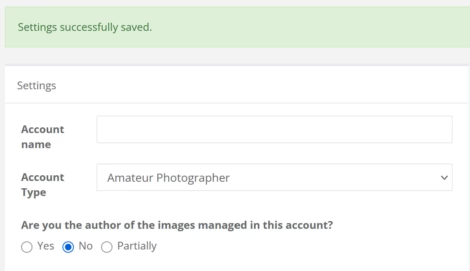
Copytrack’s app lets clients search for violations using images they don’t even own. Copytrack doesn’t ask for proof of ownership.
This setup means anyone can upload images to Copytrack’s app without owning the rights and try to cash in. That’s straight-up illegal, and Copytrack just passes the blame to their clients. Forums are full of stories from people who legally bought images but still got hounded by Copytrack, even after showing proof of purchase.
Even artists who own the rights are sometimes clueless about Copytrack’s tactics. I contacted one, Vitalii Vodolazskyi, who created an image I bought on Shutterstock. Copytrack claimed it belonged to Yayimages. As you can see in my chat with Vitalii below, that was a flat-out lie.
Copytrack’s shaky system and the abuses it causes explain their terrible reputation. They go to great lengths to dodge negative Google reviews. Their Google listing has disappeared multiple times, but alert users reported it to Google. Plus, Copytrack lists an outdated address on their website. And if that’s not enough, they even changed their name to RD Legal GmbH to wipe their digital tracks. Luckily, watchful users are calling them out.
Copytrack: A Tech Company with Limited Firepower
Copytrack isn’t a law firm or a court. They have no real authority. So, they rely on scary-sounding language to make you think they do. But their actual power is pretty limited. Their emails carefully say you “likely” violated their clients’ rights, avoiding direct accusations so you can’t claim extortion. But you don’t owe them anything.
At its core, Copytrack is just a tech company tied to its founder, Marcus Schmitt. As you can see in the chart below (source), Marcus Schmitt runs RD Legal GmbH (Copytrack’s new name) and Media-Ident Group GmbH, another tech services company. Media-Ident sells two tools, one of which, Copyident, is basically Copytrack’s app.
There’s no question things get blurry here, since Media-Ident’s address (Dresdener Strasse 31, 10179 Berlin, Germany) is the same one Copytrack used before moving. Copytrack’s old address still shows up in their legal docs, which haven’t been updated since 2021 (see below).
I Tested Copytrack: An Automated System Full of Holes
As I mentioned, Copytrack was started by Marcus Schmitt, who’s got a background in tech and chasing compensation. He ran flightright.com from 2012 to 2014 before launching Copytrack in 2015 and Media-Ident in 2019. Media-Ident even announced acquisitions in image recognition, showing it’s a lucrative gig.
Copytrack’s software uses bots to scour the web for images uploaded by their clients. That automation is their weak spot, since tons of demands hit people or companies who legally own or created the images. Why? Because Copytrack doesn’t verify anything upfront.
I created an account with just an email and uploaded images without any checks. For this test, I uploaded 33 images I created myself.
As you can see in the screenshot below, the system flagged a “hit”—an image used on my own website. Hilariously, it got the site’s physical address wrong, mixing it up with my host’s address (OVH in Roubaix).
Copytrack leaves it to the client to decide if the image use is legal or not. They even egg clients on by showing potential earnings right on the dashboard (see screenshot below).
Here’s what I found from testing Copytrack’s tracking tool:
- The detection is super shaky. Out of 33 images I uploaded, only one got flagged, even though all were on my site.
- The date for the detected image was nonsense. My article was posted on 11/13/2023, but Copytrack claimed it was online since “at least” 01/17/2025.
- The “offender’s” address was wrong, confused with my host’s address.
- When a client marks an image use as illegal, Copytrack doesn’t warn them or ask for proof of ownership.
- The dashboard shows potential earnings upfront, encouraging clients to flag as many uses as possible, even legit ones.
That’s how you build a system ripe for abuse.
How to Shake Off Copytrack?
To get rid of Copytrack, you need to understand and exploit their weaknesses.
Don’t Reply, and They’ll Stop Emailing
Getting three emails from Copytrack let me test their system. I tried three responses:
- A demand for proof of their mandate and image ownership.
- A vague message refusing to pay.
- No response at all.
Here’s the big takeaway: if you don’t reply (option 3), you won’t get follow-ups. Their system doesn’t know who it’s emailing. Replying confirms your email works. Ignore them, and they’re lost.
Demand Proof
Copytrack’s business model hinges on that 45% commission. To make money, they need to spend as little time as possible on you. Asking them to prove their mandate and ownership forces them to work. Their terms say clients must provide proof of ownership right away if asked.
That extra work costs them money. It’s a great way to make yourself a hassle and get them to drop your case (check out an example of this tactic here). This article by a lawyer agrees: demand proof of their mandate and ownership before sending anything. It messes with their automated process and makes you unprofitable, so they’ll likely back off.
Check the Image’s Originality
99% of the images Copytrack demands payment for aren’t original. A court would never side with them, and they know it. Their demands can be laughable. Get this: they asked me for €724.50 for the image below.
If the image isn’t a photo, Copytrack has no shot at winning. Even for photos, their odds are slim because it hinges on originality. The Varamedia case shows this perfectly. A company wrongly accused by a copyright troll hired a lawyer who shut down all originality claims, and the troll vanished.
How to Stop Copytrack for Good?
Copytrack’s sketchy tactics have been ticking off users for years. Check out the 500+ reviews on Trustpilot.
- First, leave as many negative reviews as you can. Warn other potential victims.
- Second, report them to your country’s authorities and consumer protection groups. This worked in Italy, where companies filed complaints, and Copytrack had to fight for its life before the Competition Authority. They made concessions to keep operating in Italy, probably scared of ending up like Photoclaim. It likely cost Copytrack a fortune, but their lawyers, Luciano Vasques and Claudio Pezzi, and boss Marcus Schmitt seemed pleased with the outcome (see their LinkedIn post).
How to File a Complaint Against Copytrack?
Here’s where to file complaints online:
- Belgium: https://pointdecontact.belgique.be
- France: For individuals, file on Thésée. For businesses, go to a police station or gendarmerie.
- Italy: https://www.agcm.it/competenze/tutela-del-consumatore/come-segnalare
- UK: https://www.nationalcrimeagency.gov.uk/contact-us


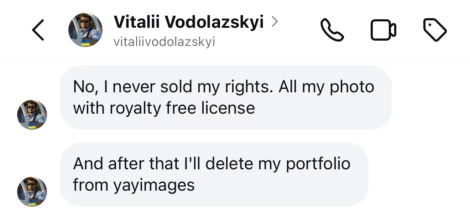
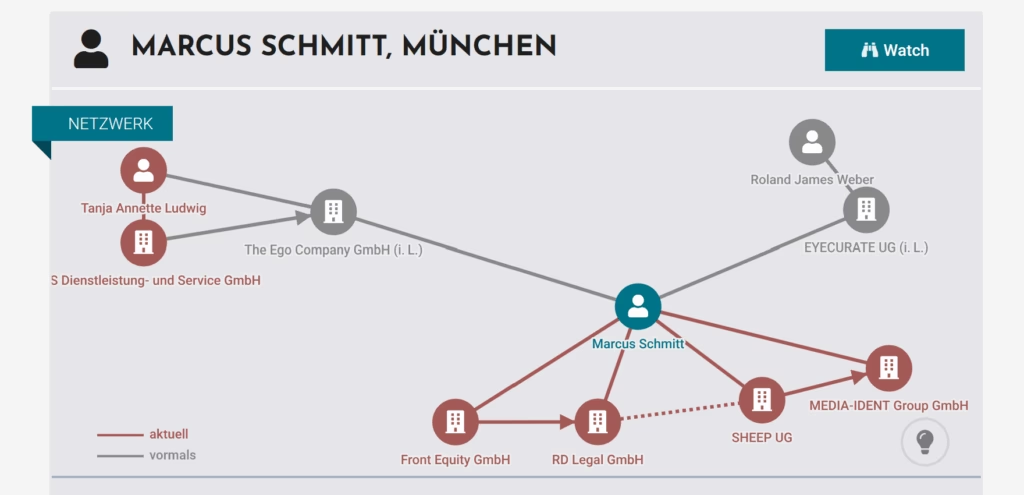
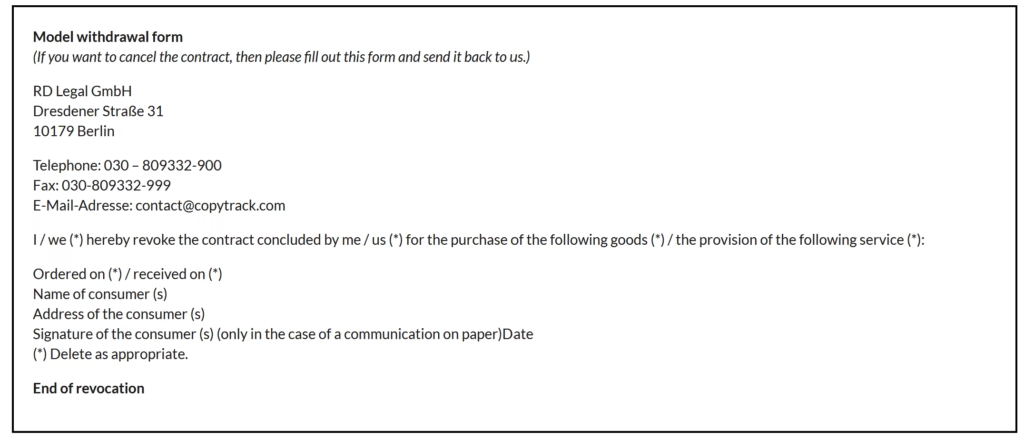

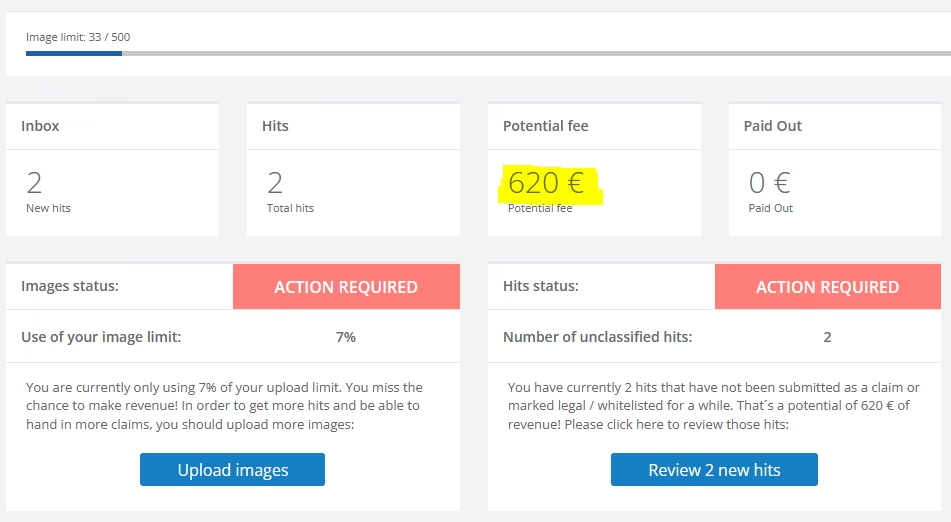
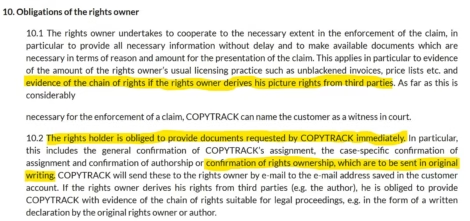

![Illustration of our post "LinkedIn remains under-used by marketing managers [Research]"](/blog/app/uploads/linkedin-logo-120x90.jpg)



